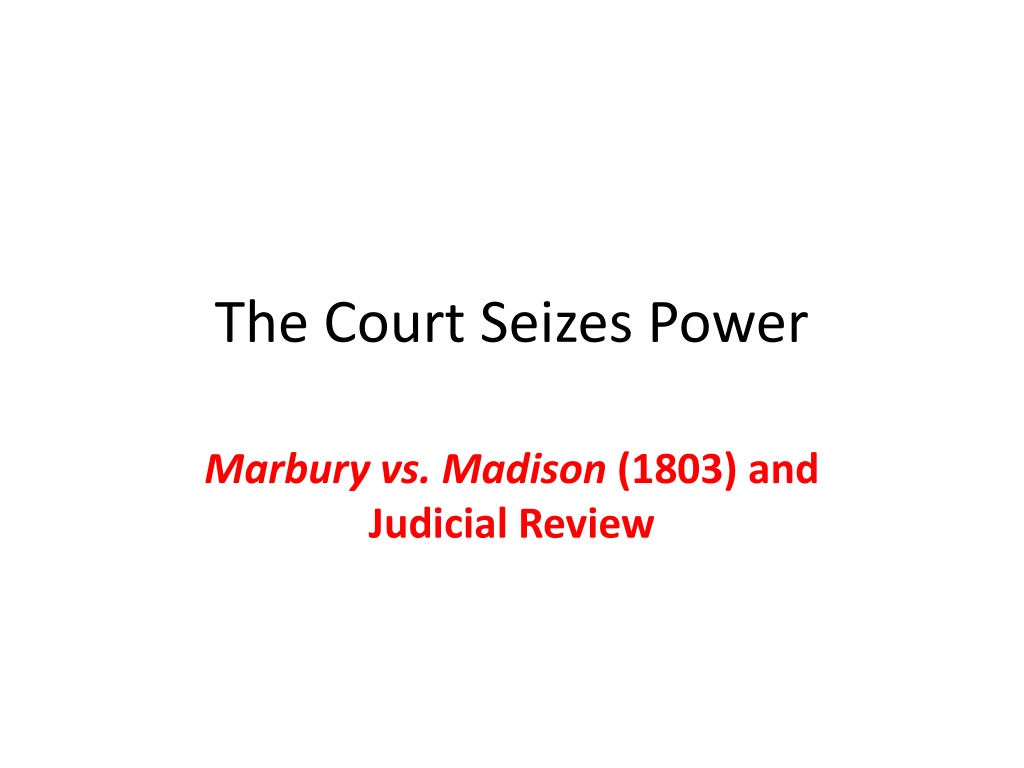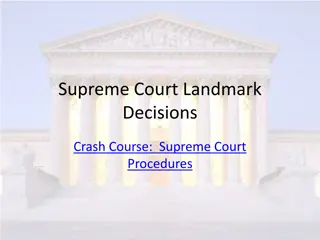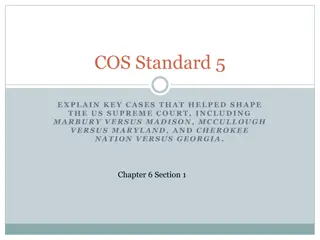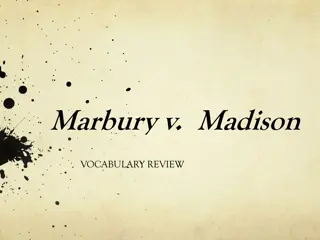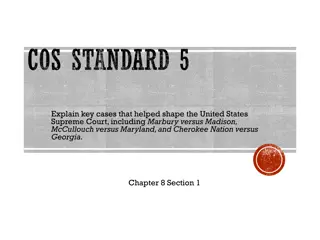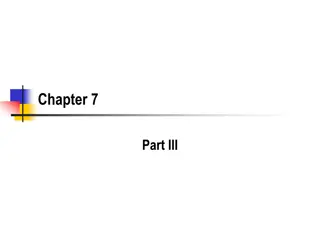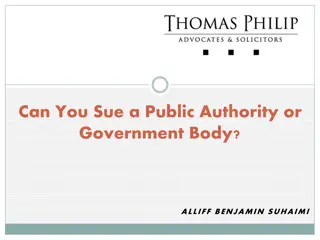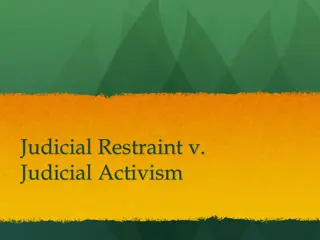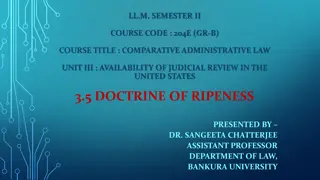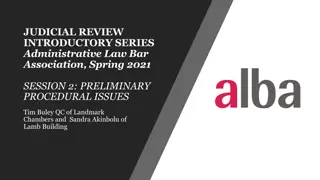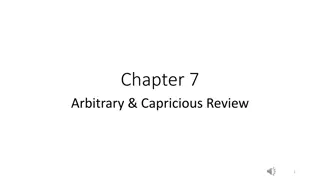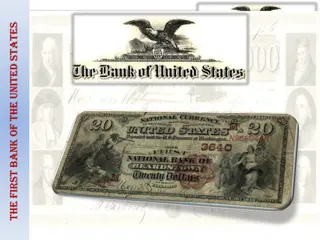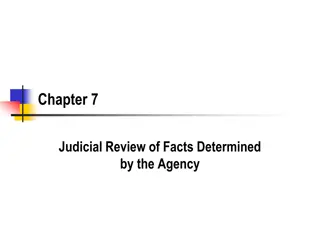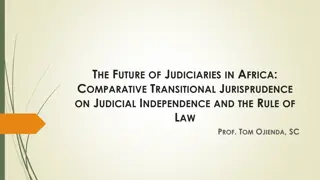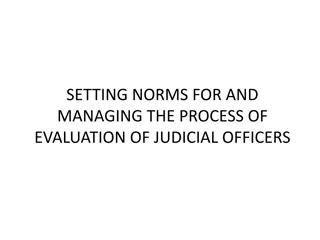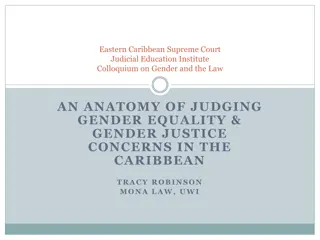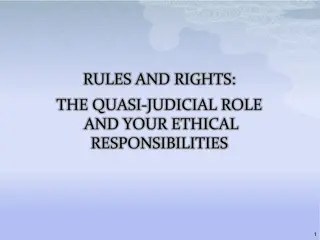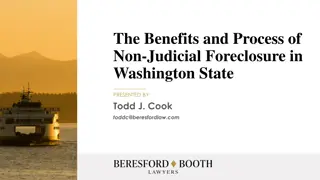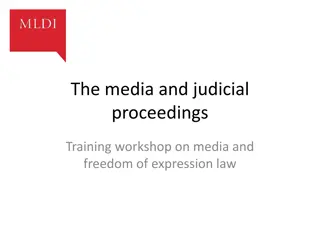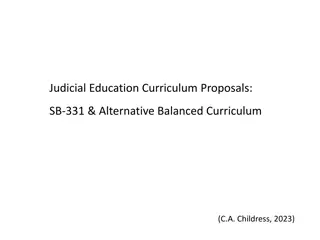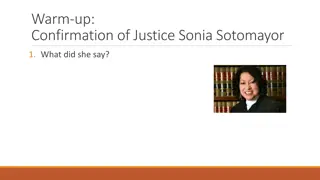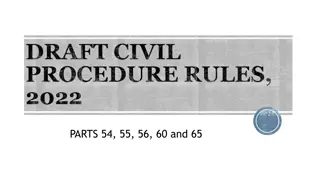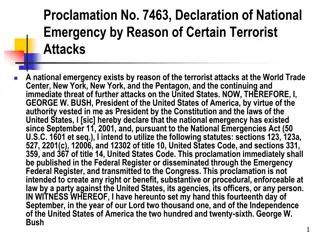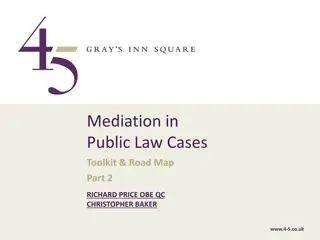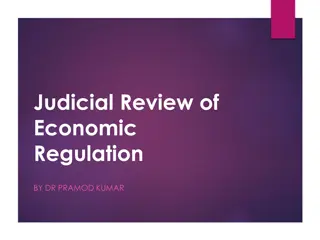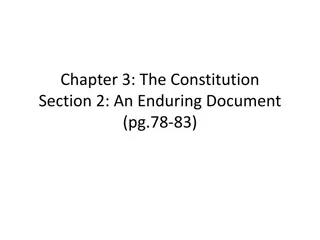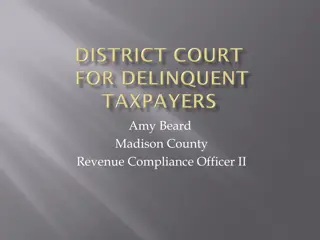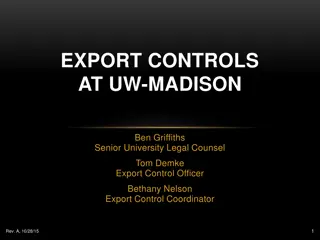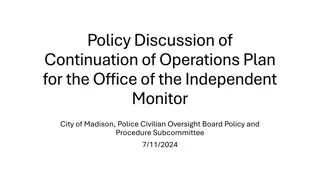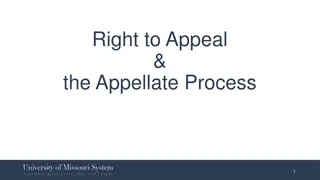Marbury vs. Madison (1803) and Judicial Review
In the case of Marbury vs. Madison (1803), William Marbury sought a writ of mandamus from the Supreme Court to force Secretary of State James Madison to provide him with his commission as a Justice of the Peace. The Court's decision established the principle of judicial review, empowering the judiciary to review the constitutionality of legislative and executive actions.
Download Presentation

Please find below an Image/Link to download the presentation.
The content on the website is provided AS IS for your information and personal use only. It may not be sold, licensed, or shared on other websites without obtaining consent from the author. Download presentation by click this link. If you encounter any issues during the download, it is possible that the publisher has removed the file from their server.
E N D
Presentation Transcript
The Court Seizes Power Marbury vs. Madison (1803) and Judicial Review
William Marbury 7 November 1762 13 March 1835
James Madison 16 March 1751 28 June 1836
William Marbury was nominated and later he was appointed as a Justice of the Peace of D.C. for a 5 year term by the President with the advice and consent of the Senate on 3 March 1801. However, the official paperwork did not reach Marbury by 4 March 1801 when Jefferson took office.
His commission was signed and delivered to the Secretary of State (keeper of the great seal of the United States) and sealed. The State Department personnel refused to give Marbury a copy of his commission.
He brought suit to force Secretary of State James Madison to give him a copy. Technically, Marbury asked the Supreme Court to issue an order a Writ of Mandamus (an order by a superior authority [in the Common Law, an order by the King] instructing an inferior one to redress a wrong).
It came before the Court on 21 December 1801 but a decision was not handed down until 24 February 1803. 1.Has he a Right to the Commission? YES 2.Has he a Remedy (Section 13 of the Judiciary Act of 1789 authorizes the Court to issue a writ of Mandamus)?YES
3. Whether or not he is entitled to the remedy depends on: a.The nature of the writ In this instance, force James Madison to perform his public duty; namely, to give Marbury the original [or a copy of] his commission to be a Justice of the Peace in the District of Columbia): That is: i.Can the writ be directed to the officer in Question? YES ii.Is he without any other remedy? YES b. Does the Court have the Power to Issue the Writ? NO.
Clever argument by Marshall. The Constitution splits the jurisdiction into two parts original and appellate. Congress may pass laws only with respect to the appellate jurisdiction. Nothing is said about Congress passing laws with respect to the original jurisdiction. Hence, the Judiciary Act of 1789 assigns the mandamus power to original jurisdiction. This is unconstitutional and is void. [THIS IS THE WEAKEST PART OF THE ARGUMENT!!!]
4. Does the Court Have the Power to Declare Section 13 of the Judiciary Act of 1789 Unconstitutional? YES. [THIS ARGUMENT IS REASONABLE]
Defects in the Argument Plain Language of Constitution Article III Section 2 paragraph 2 In all Cases affecting Ambassadors, other public Ministers and Consuls, and those in which a State shall be Party, the supreme Court shall have original Jurisdiction. In all the other Cases before mentioned, the supreme Court shall have appellate Jurisdiction, both as to Law and Fact, with such exceptions, and under such regulations as Congress shall make. Congress clearly has the authority to enlarge (but not diminish) the Court s original as well as appellate jurisdiction. THIS WAS CLEARLY A POLITICAL DECISION!
Question Granting that the Court may declare unconstitutional an act passed by Congress and signed by the President; can it and it alone invalidate that law?
Thomas Jefferson 13 April 1743 4 July 1826
Answer: Thomas Jefferson a.The Judiciary may declare an act of the Legislature unconstitutional; but the Legislature may then impeach the judges and at the next election take its chances with the people with whom the final decision lay. b.The Executive, at his own discretion, meanwhile, may continue to execute the law as though the Court had not spoken, and until the people in the next election voted to sustain or discredit his action.
The Supremes did not declare an Act of Congress Unconstitutional until the Dred Scott decision in 1857 54 years later!
